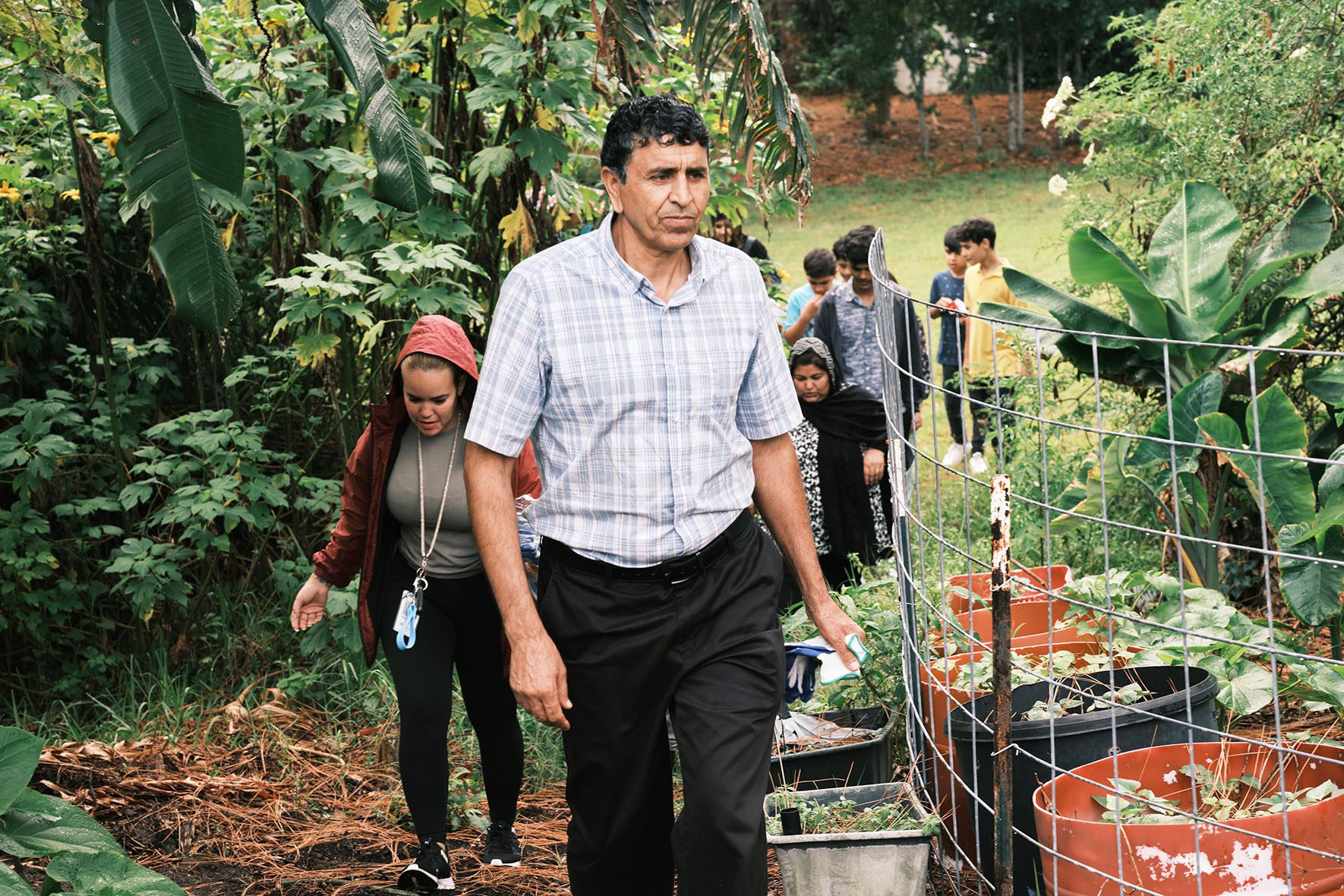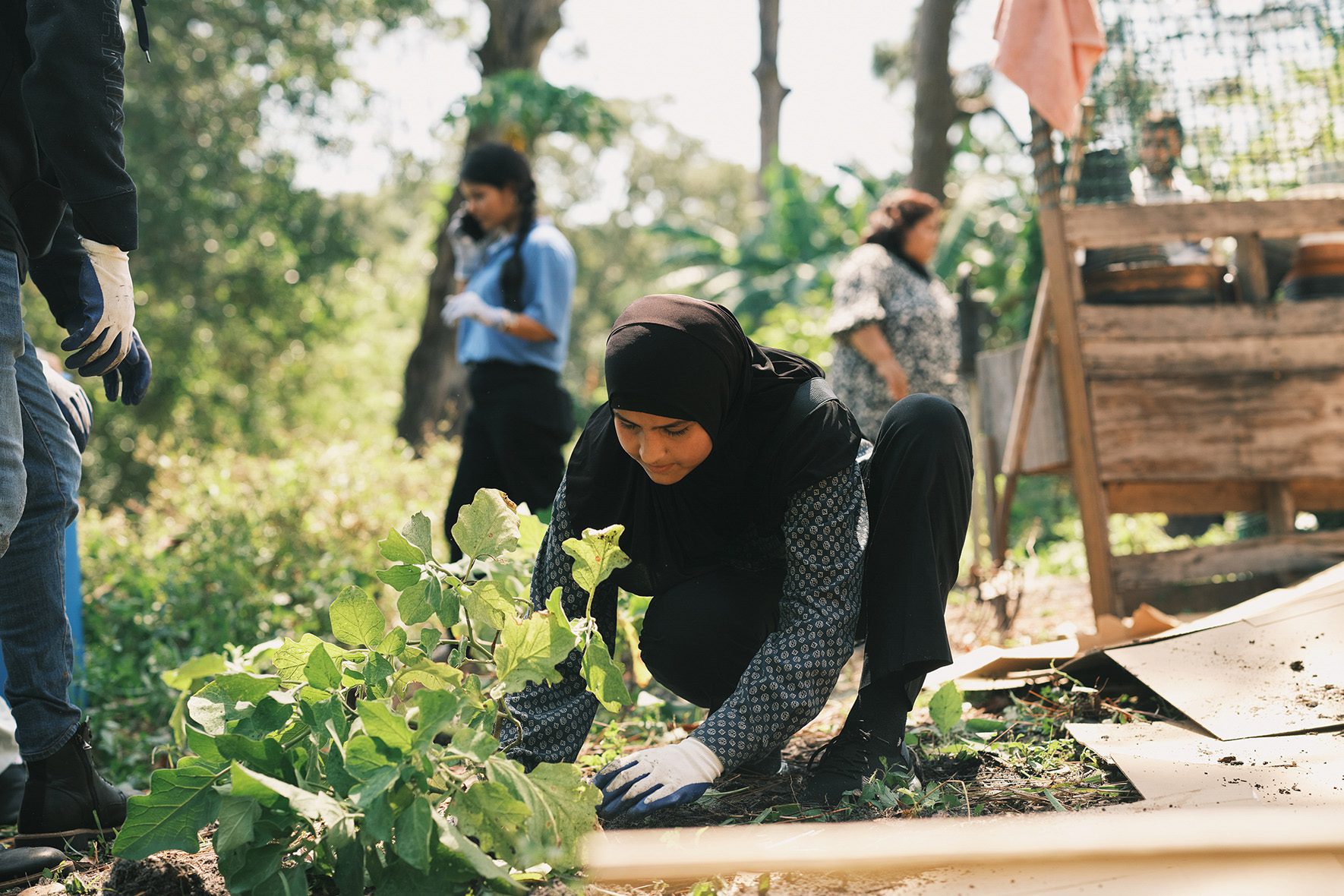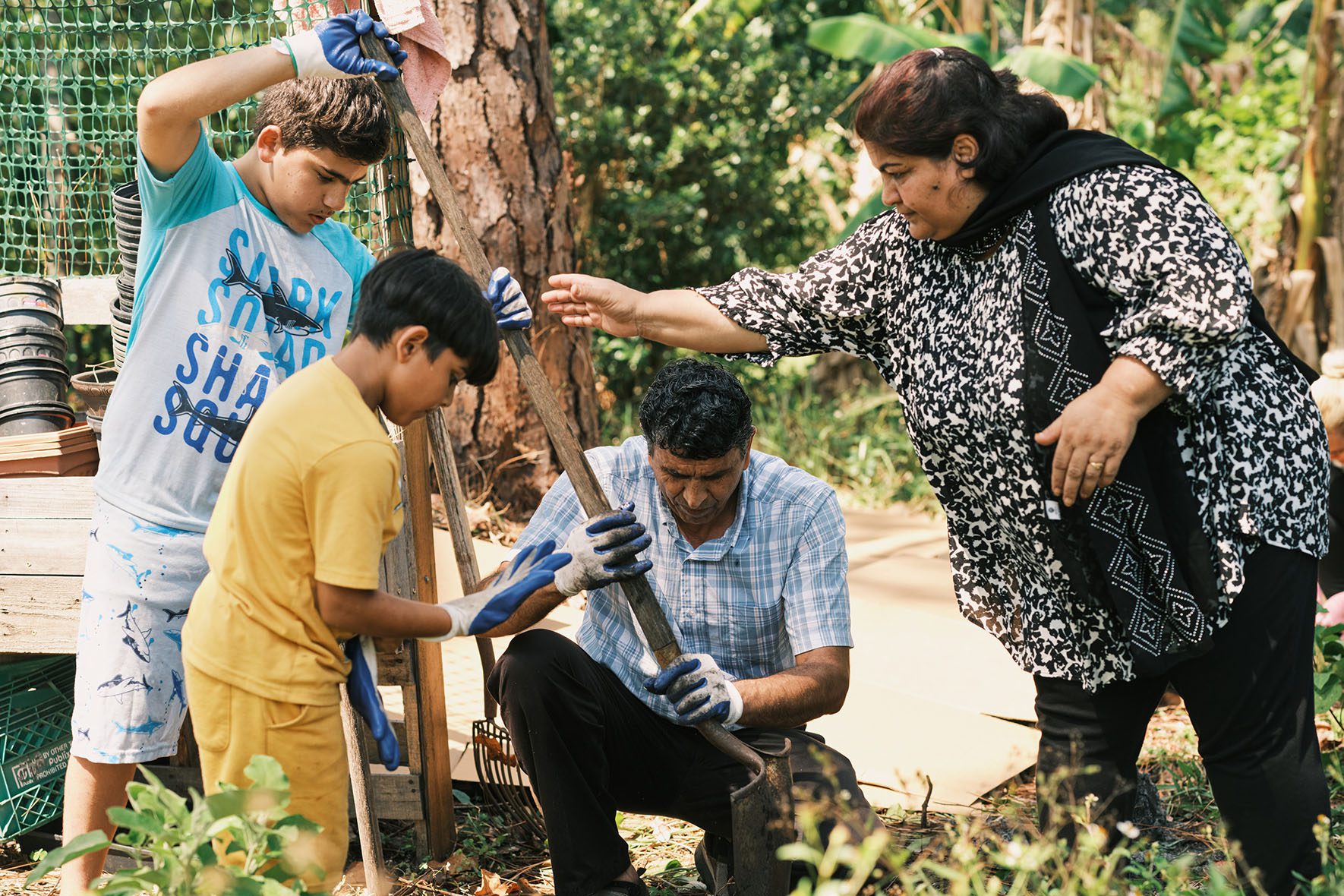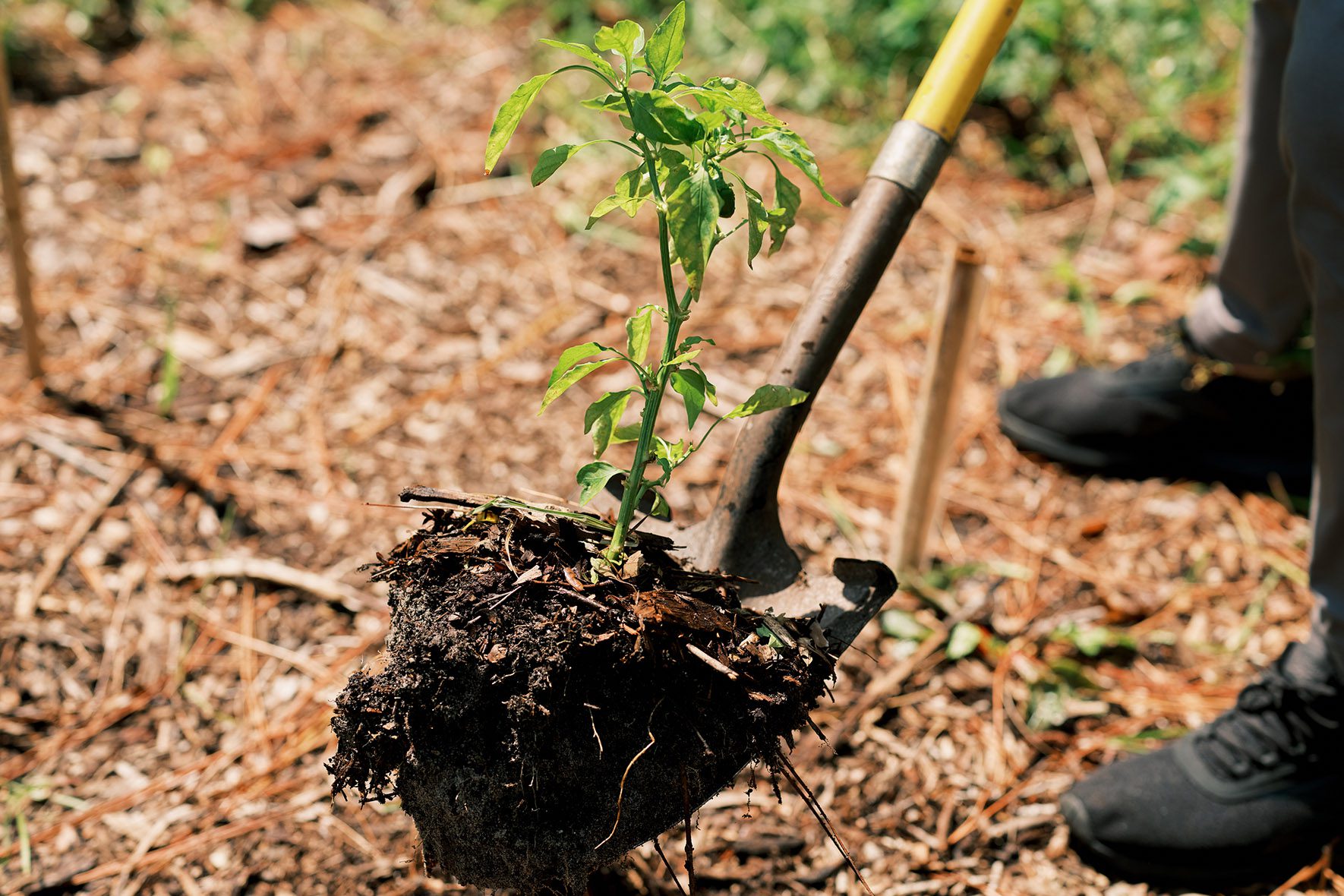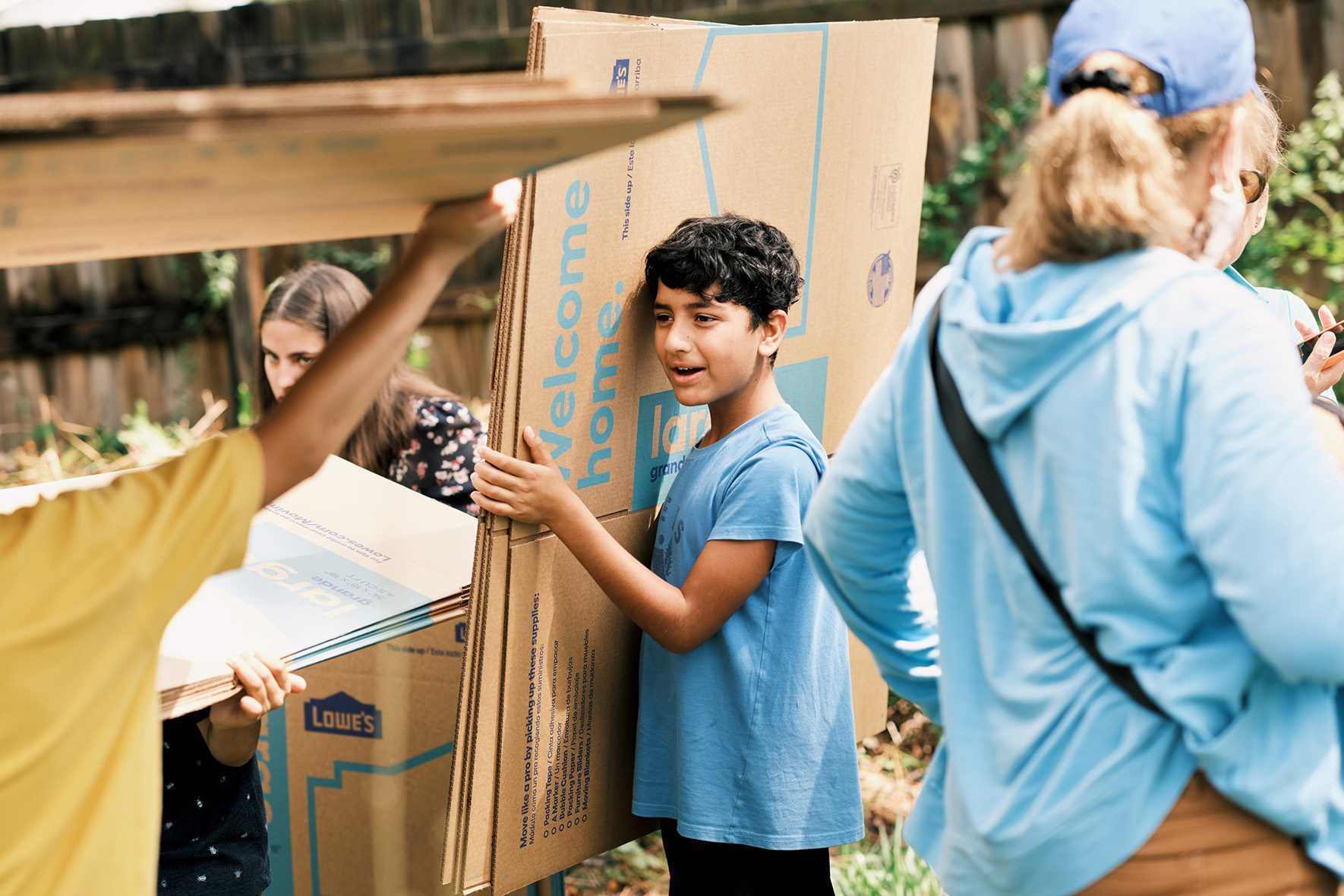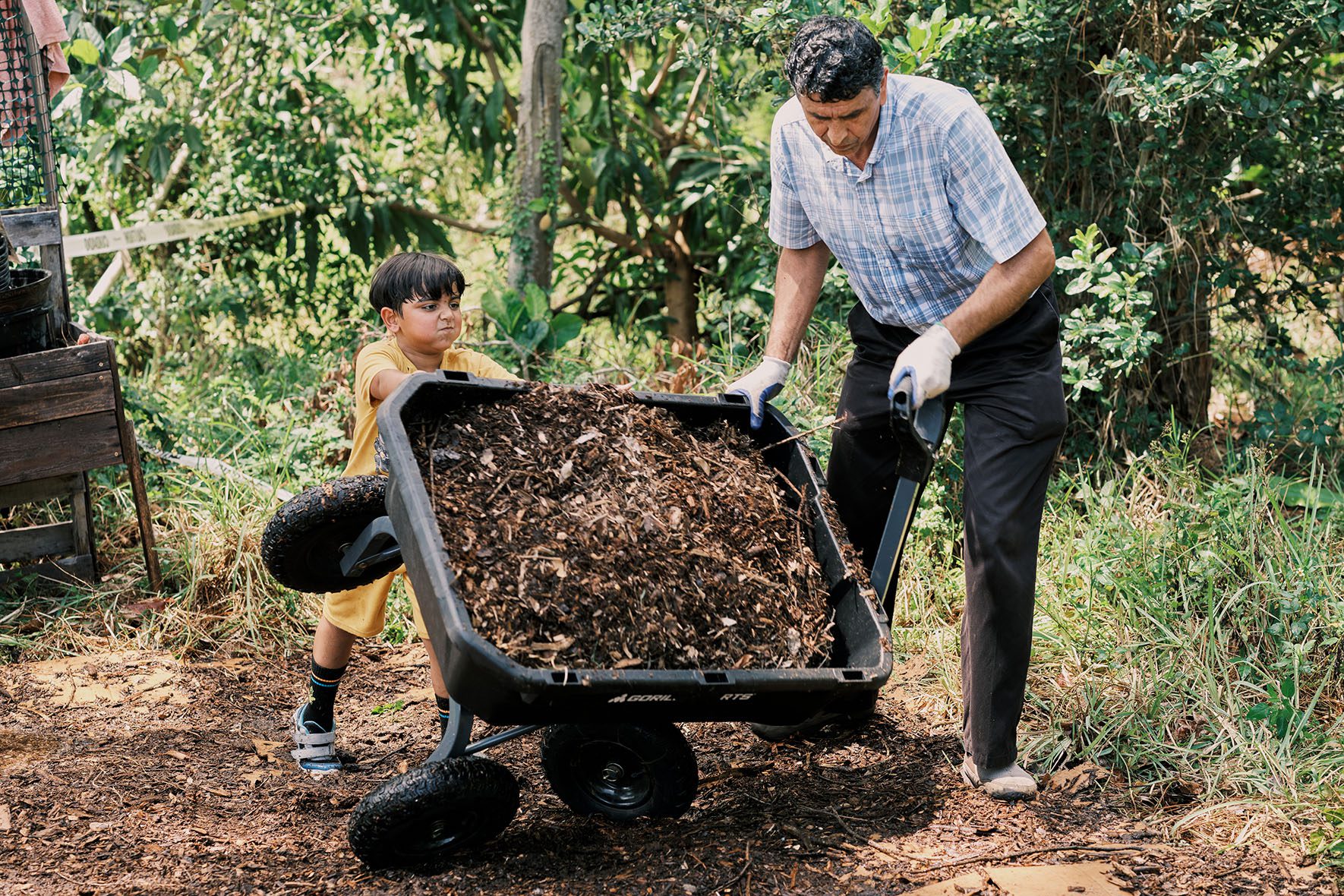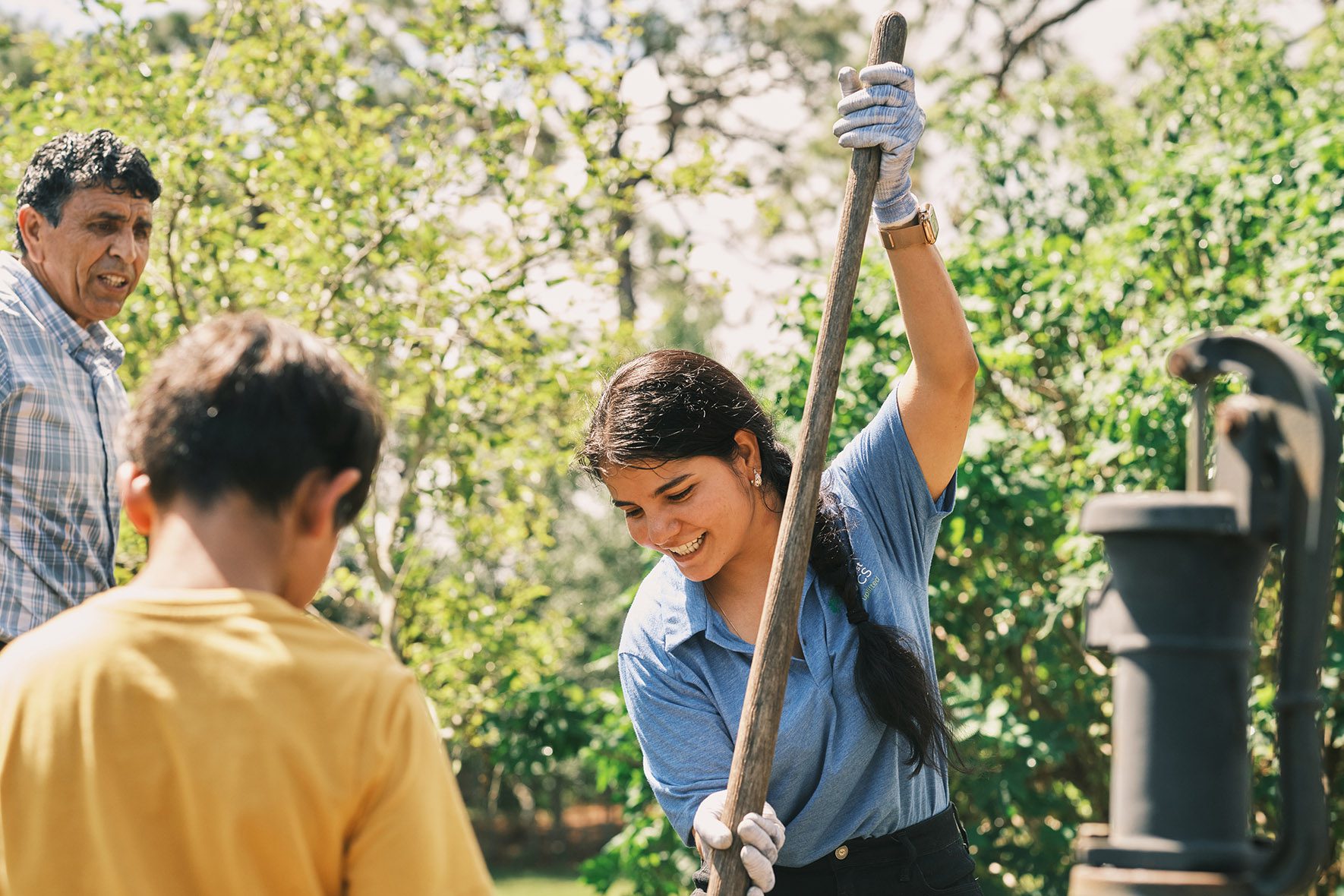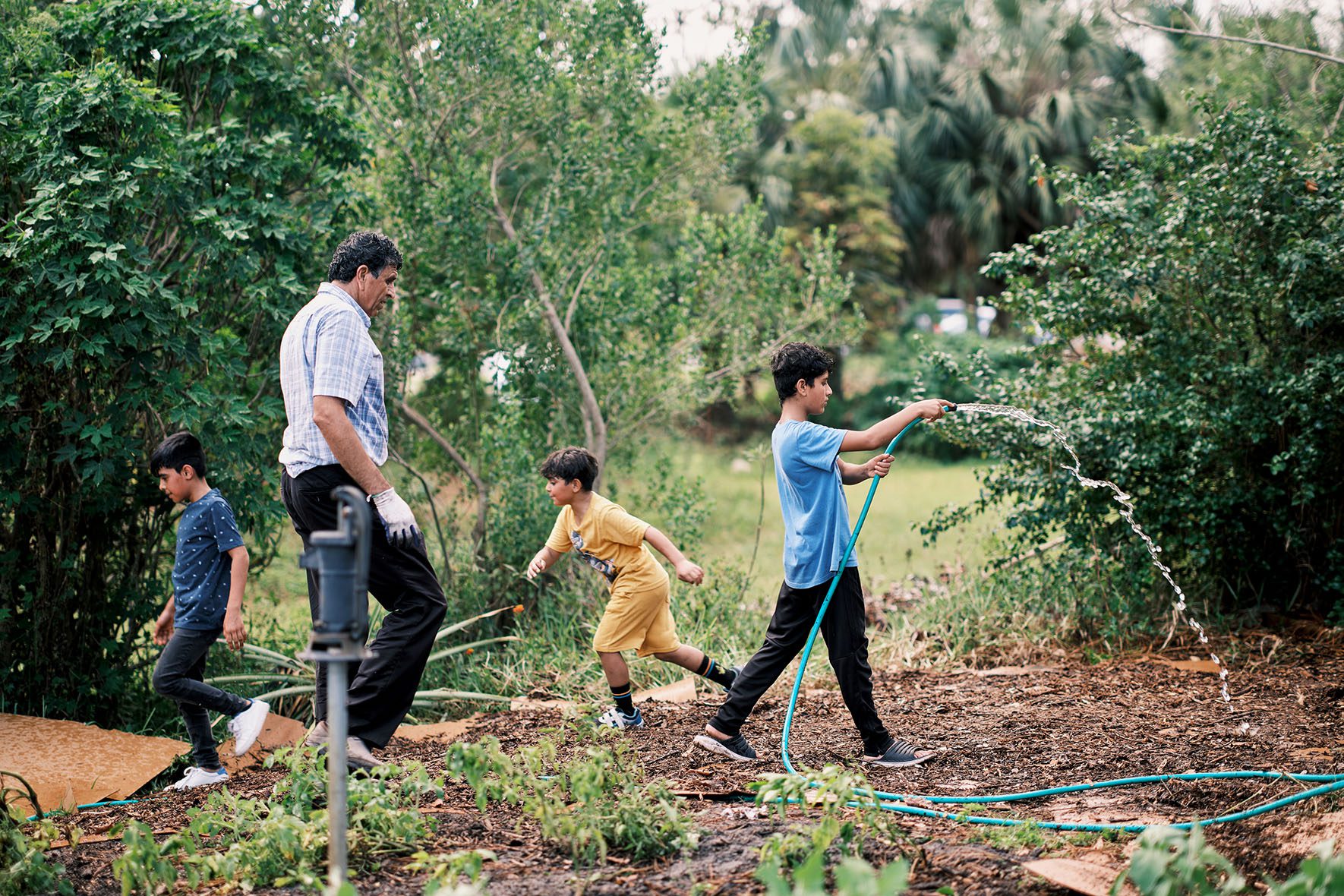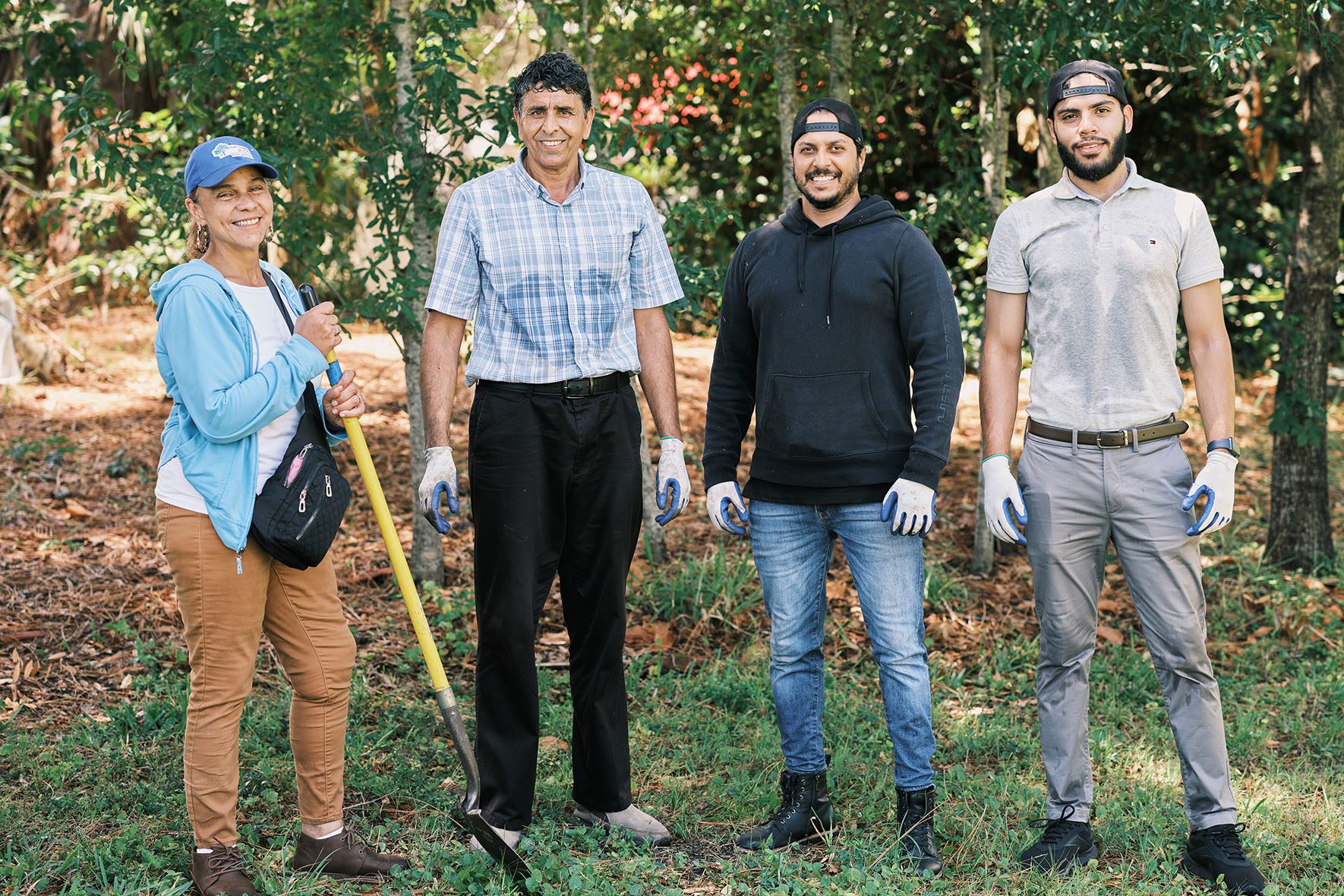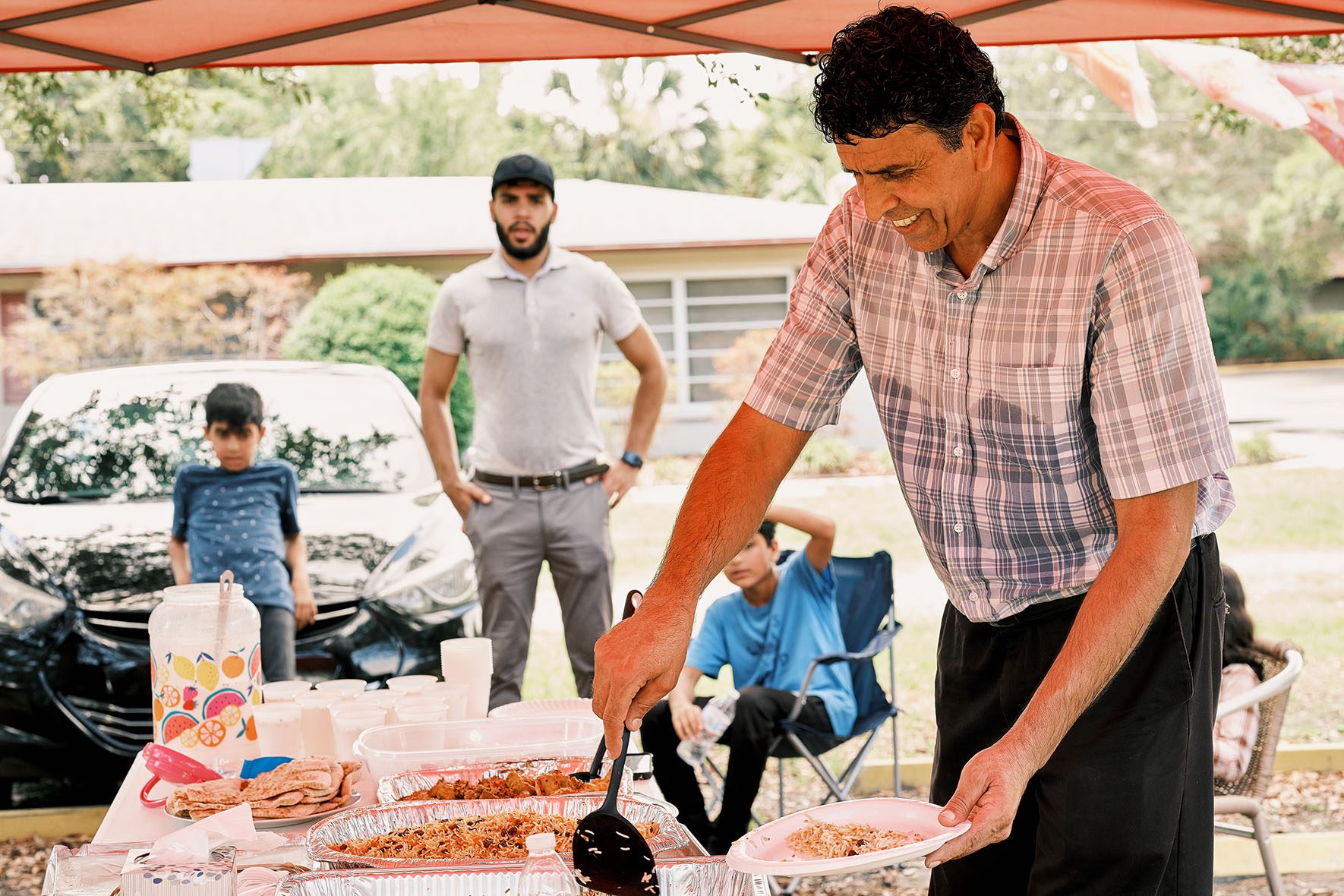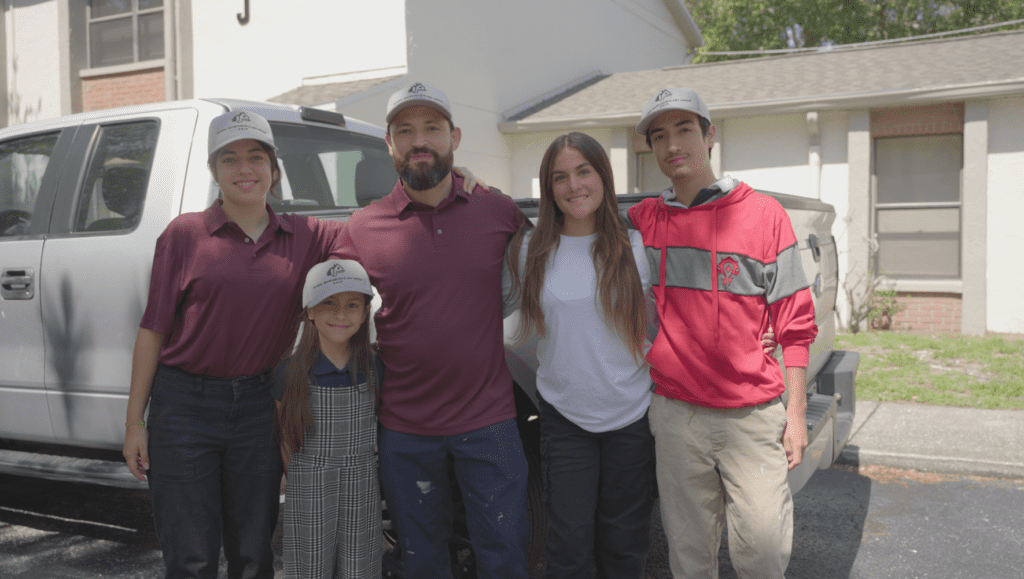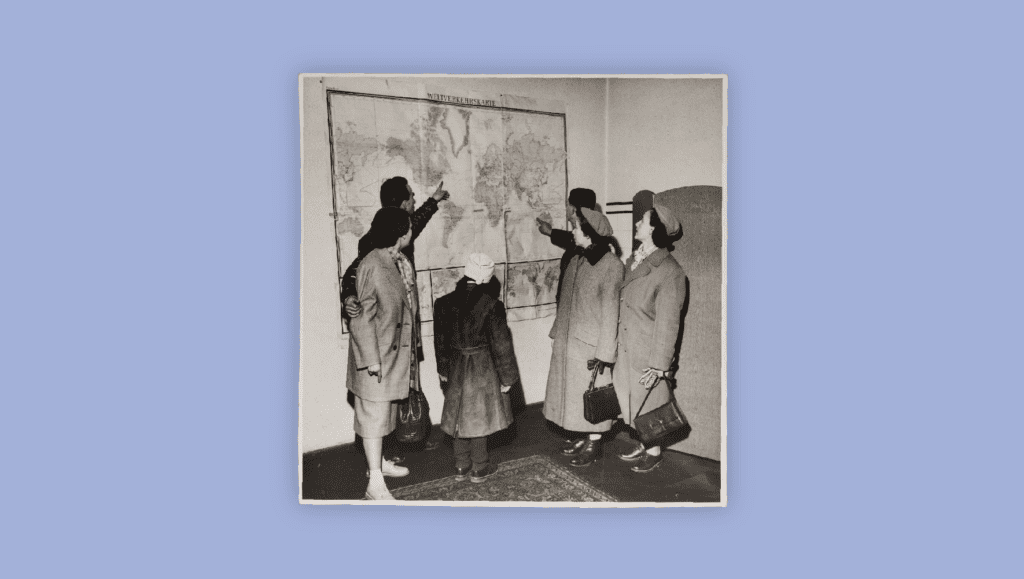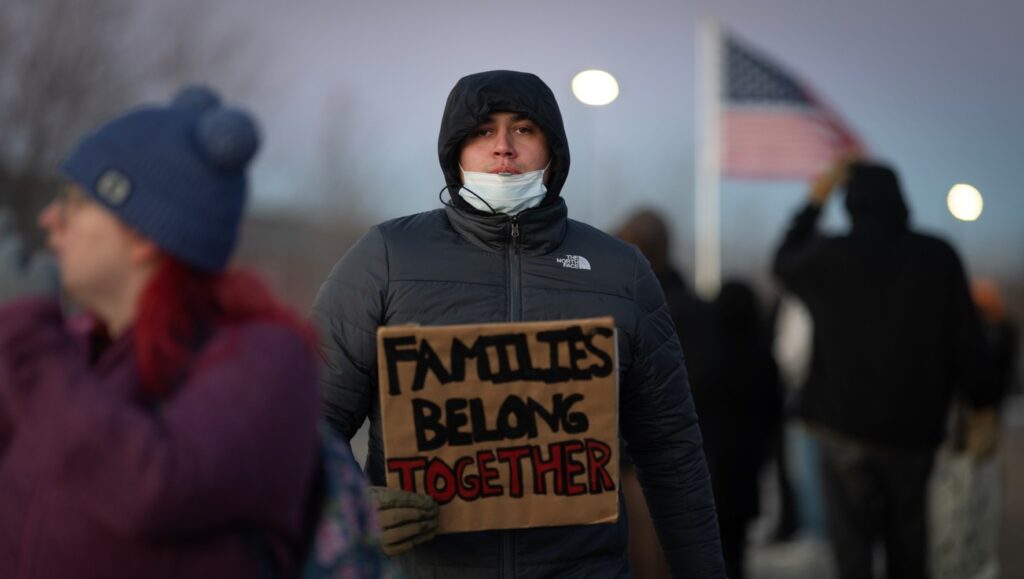When refugees first arrive in their new communities, the organizations and individuals helping them resettle are tasked with meeting their immediate needs — such as picking them up from the airport, making sure they have housing, ensuring they have food and other necessities, and helping them find employment. But putting down roots in a welcoming community is just as important for refugees’ long-term success in the United States. To facilitate this new phase, HIAS resettlement partner Gulf Coast Jewish Family and Community Services — an organization based in Clearwater, Florida — has developed a community garden where clients can cultivate foods used in their native cuisines.
The organization’s Refugee Garden is hosted on land donated in July 2022 by the Unitarian Universalists of Clearwater, a long-time community partner of Gulf Coast JFCS. After considering how best to use the land to benefit their newly arrived clients, Abdel Dana Roca, director of refugee integration services for Gulf Coast JFCS, and his team initially chose produce traditionally used in Afghan, African, and Latin American cuisines to reflect their clients’ origins.
“As somebody who [also] came from outside the United States, belonging is one of the things that I most consider,” said Dana Roca, who was born in Cuba and grew up in Jordan. “This is a good opportunity to feed the refugees’ sense of belonging through a garden — a piece of land that they can use as much as they want. We have no gates.”
Rahmatullah, 51, comes to the garden most days. In Afghanistan, he worked as a plumber in a job that put him into contact with both the U.S. military and Provincial Reconstruction Teams (joint civilian and military ventures that engaged in the reconstruction and development of areas in Afghanistan.) When the Taliban seized control of Afghanistan in August 2021, Rahmatullah’s employment history put him in danger. He was able to flee with three of his children — two sons, aged 17 and 9, and a 15-year-old daughter — but had to leave the rest of his family behind.
After a long journey, the family arrived in Florida on February 14, 2022, where they were resettled by Gulf Coast JFCS. The organization helped the family get started in their new community: finding them a place to live, helping them receive benefits such as food stamps, enrolling the children in school, and guiding Rahmatullah as he earned his driver’s license.
Rahmatullah is not yet able to work as a plumber in the United States due to a language barrier, though he is already taking classes to improve his English. For now, he works in a factory that produces mesh bags. But his wealth of experience in growing his own crops — a practice that is very common in Afghanistan — greatly helped Gulf Coast JFCS staff and other refugees in planning the garden.
“I enjoy working in the field, especially to grow plants,” Rahmatullah said with the aid of a translator. “When I come back from, or before I go to work, I like to spend some time with the plants. It’s good for my health.”
The soil and irrigation in the garden are different from Rahmatullah’s native Nangarhar province, and Florida doesn’t get as cold in the winter. But the climates are similar enough that Rahmatullah can grow many of the same foods he could back home; tomatoes, oranges, okra, and eggplant are some of his favorites.
“It’s different when you buy food from the store, especially if it’s frozen, and when you get it from the garden,” Rahmatullah said. “It’s very fresh, the taste is different.”
But the benefits of working in the garden extend far beyond the food refugees bring home. The garden is also fertile ground for refugees to foster connections with each other and with members of the broader community. Often on weekends, Rahmatullah brings his children with him to the garden to help out. Working in the garden has given the family the opportunity to develop deeper connections with other refugees in the community — as well as the opportunity to give back.
“Growing plants, it’s not only to benefit myself and my family,” said Rahmatullah. “It’s to benefit the rest of the people, so that they can take some vegetables home and make some dishes. So I enjoy it.”
“When I come back from, or before I go to work, I like to spend some time with the plants. It’s good for my health.”Rahmatullah, an Afghan evacuee resettled by Gulf Coast JFCS
The garden is an ever-expanding project and a focal point for engaging Gulf Coast JFCS’ local community. On June 1, Gulf Coast JFCS refugee clients, staff, and volunteers gathered to double the arable land in the garden by clearing and weeding new areas, harvesting crops, and strategically relocating plants to give them better space to grow. As usual, Rahmatullah and his family were active participants, with Rahmatullah taking on a leading role.
“We started the garden to create a community in a centrally located place for our clients, but we needed a leader to step up,” Dana Roca said. “For a project of this magnitude, leadership must be shared with the community we serve to best bring people together and provide the support needed. Rahmatullah showed up day in, day out as the voice of the community and as a welcoming face to those new to the experience.”
This recent expansion was the fourth major service day hosted in the garden. Often, those participating have the opportunity to taste the fruit of their labor by eating foods that incorporate crops previously harvested at the garden. During a previous service project, teenagers from Jewish Federation of Florida’s Gulf Coast’s Better to Serve project created signs in the languages spoken by the refugees who use the garden to label the different plants and beautify the space.
“There are six different languages spoken among the people we support there,” said Dana Roca. “They all work together in the space.”
In the future, Dana Roca plans to incorporate foods traditional to Ukrainian cuisine — refugees from Ukraine were not yet arriving when the garden was originally planned — and to loop the garden into an existing refugee marketplace hosted by Gulf Coast JFCS. Dana Roca hopes to make it possible for clients to sell food they create using produce from the garden, including a specialty from Afghanistan — vinegar-pickled vegetables such as garlic, tomatoes, and eggplants. This would not only provide the community with some additional income, but an outlet to stay involved in their heritage even far away from their original homes.
“We encourage people to engage with their traditions even after they immigrate to the U.S., even after they become citizens,” said Dana Roca. “We celebrate differences between each other and within our traditional cultures.”
